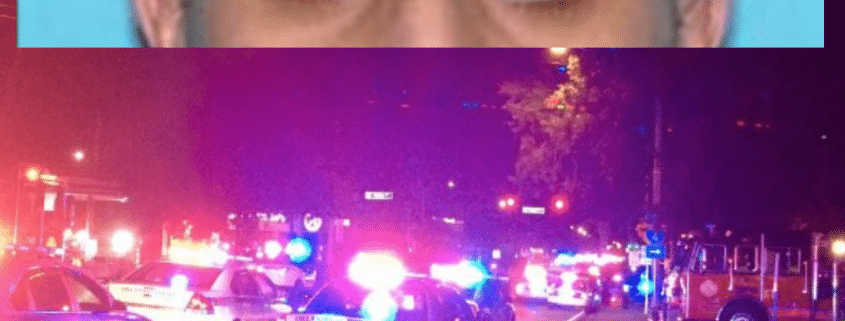Three Hours of Terror: Why Did Orlando Police Wait So Long?
2:02 am—Shooting erupts at Pulse nightclub in Orlando.
2:09 am – Pulse pastes a warning on Facebook.
2:22 am – Shooter calls 911.
5:00 am – Orlando SWAT made entry into the Pulse nightclub.
Three hours passed from the time the Omar Mateen pulled the trigger for the first time until police stormed the building to end the situation. During that time period 49 people were killed and 53 were wounded. Many have questioned why police waited so long to engage the shooter.
After all, studies have shown that in a typical mass-casualty shooting, one person is killed every 15 seconds, and we all know that terrorists aren’t likely to let hostages live. And when terrorist do enter into negotiations, it’s merely an attempt to prolong the situation in order to prolong their time before the media.
Some wonder why this was not treated as all other active shooter scenarios where first-responding police officers are trained to not wait and to rush toward the gunfire to hopefully save lives.
So why did police wait so long? Should they have entered the club sooner?
First, it’s important to understand that no two incidents are the same. The motivation behind each situation varies. Surroundings also play a part in how law enforcements reacts to a given scenario.
In Orlando, police knew a shooting situation was underway, yes, but what set this event apart from a typical active shooting situation (it’s a shame that we’ve seen enough active shooting situations that there is now a “typical”) is that the shooter, Omar Mateen, was in contact with the media and the police throughout, and what he was telling people was that he had hostages, he was armed with explosives, and that he was loyal to ISIS.
He was a terrorist and ISIS has taken credit for his actions.
During the incident, Mateen posted several comments to social media relating to ISIS and his hatred for the U.S., such as …
“You kill innocent women and children by doing us airstrikes..now taste the Islamic state vengeance.”
And …
Mateen’s Facebook posts and comments to police and the news media were likely factors in the decision-making process of the police on the scene.
Initially police treated the event as a hostage situation. Protocol typically (there’s that word again) suggests that unless people are being killed officers should slow things down and try to communicate with the suspect. In Orlando, obviously the shooting had stopped, at least for a while, so police settled into “standoff” mode. This stance is often necessary because police do not know what’s going on inside and it’s possible the suspect is ready and waiting for police to rush in without any sort of planned course of action.
Besides, a threat of explosives inside the building would be more than enough cause for police to slow things down to give them time to bring in specialized equipment and personnel.
By the way, the equipment needed for these extremely dangerous situations is the very equipment the federal government has taken away from police. But that’s a topic for another day.
Mateen told police that he’d strapped bombs to four hostages and was placing them in the four corners of the building. Calls from people inside the club confirmed that Mateen was talking about the bombs and that he was preparing to put on an explosive vest.
During the three hours, Mateen made at least 16 phone calls.
So, when the armored vehicle arrived along with the SWAT unit, police crashed into the building where they found the dead and the wounded. Mateen was killed by police. When they approached him they saw a battery pack near his body along with a bag of some sort—indicators of an explosive device and detonator.
We cannot second-guess the actions of police on the scene that night because only they know what they were facing at the time, and it’s obvious there was a possibility of imminent death had they rushed into the building unprepared. Dead officers are of no help to anyone. Had there been explosives, well, the end result could have meant a number of deaths far greater than the already devastating loss of the 49 victims.
Did Orlando police make the right call when they elected to wait? Many armchair detectives and Monday morning quarterbacks say no, or yes. Others, who are experts in hostage situations and terrorism also say yes, or no. And the reason for varying responses is that there is no definitive textbook answer to the question.
Hindsight can provide better answers and ideas, of course, Unfortunately, hindsight is not available in the heat of the moment.
Omar Mateen was a terrorist, and his final word to the people of the U.S. was …
*I offer my condolences to the family and friends of those who lost loved ones in the Orlando shooting. I can’t begin to imagine your pain. I can only hope that you will find a way to move forward and find some sort of comfort now and in the coming days, months, and years.
And, as always, I offer my support and thanks to the officers and other first responders, and our military, who continue to face danger, risking their lives each and every day so that we can remain free and safe.
*Please remember that this blog is not the place for arguments about politics, gun control, race issues, and other hot-button topics. However, I do welcome and encourage comments and discussion. We deal in facts here, not emotional responses to current events. The latter is often why I wait a couple of days before addressing some issues.






